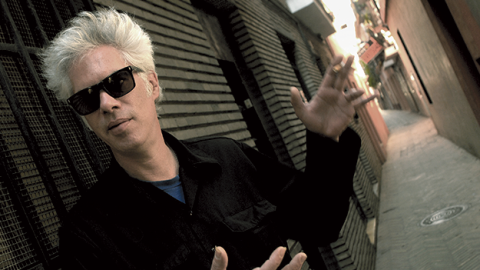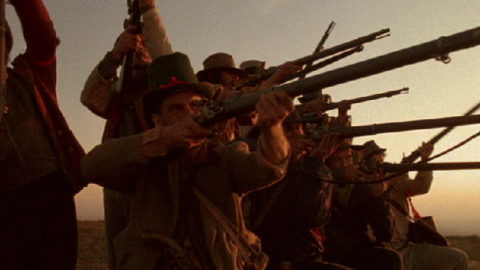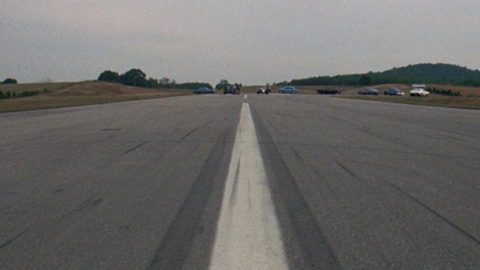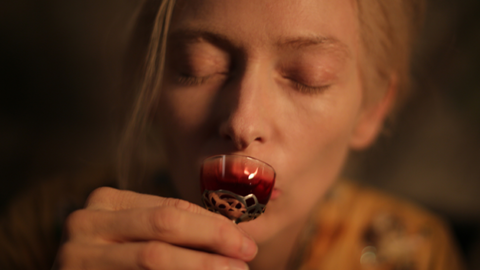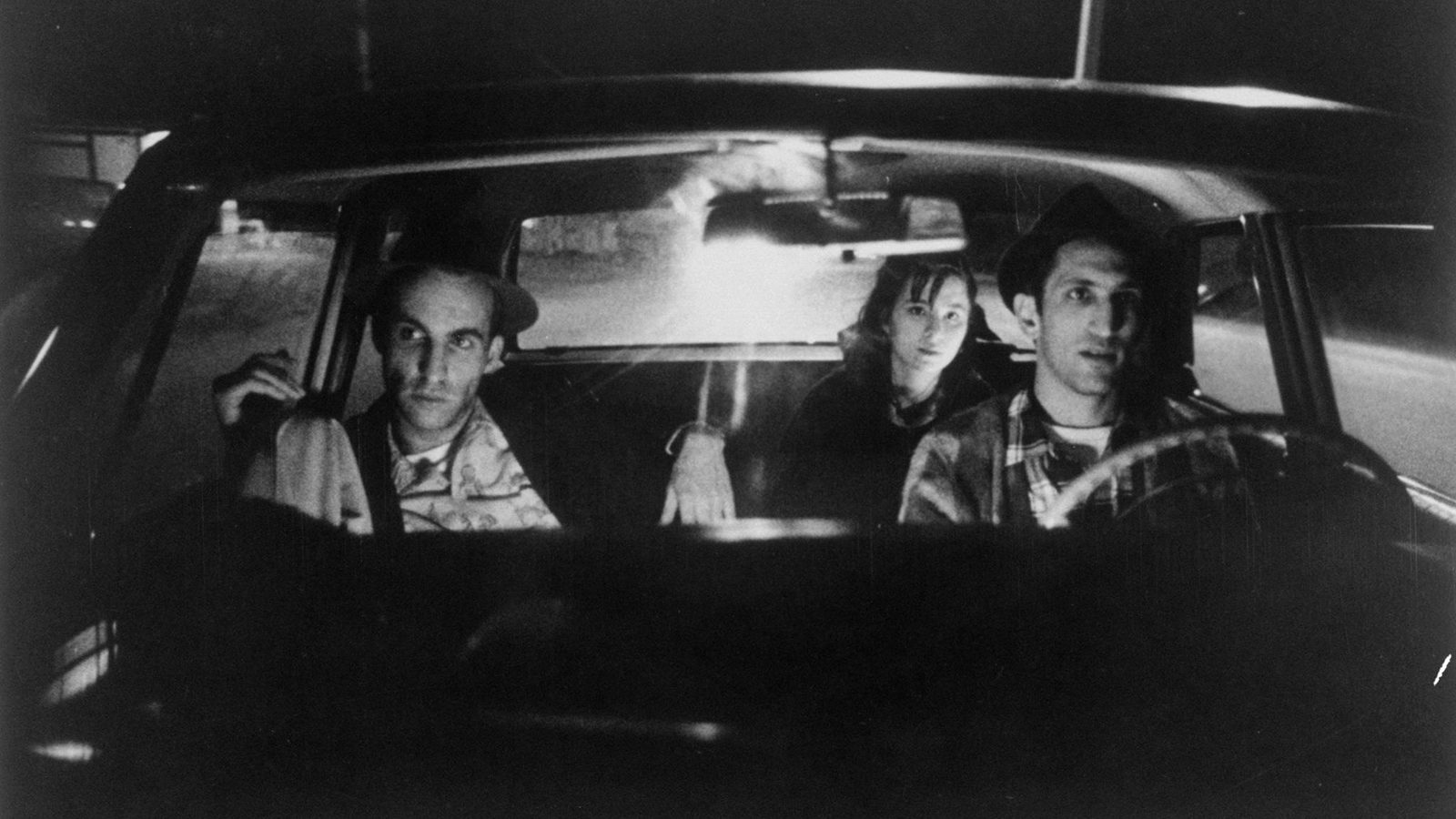
Interview: Jim Jarmusch
Akron’s most famous son, other than the Goodyear Blimp, is Jim Jarmusch, whose Stranger Than Paradise refashions the image of the American landscape. It’s Cleveland where God sat when he made Lake Erie. It’s Guernica without the terror, a rusting industrial theme-park, where we are the mice left after the giants have died, and existence is a hipster’s hustle.
More than a story of aliens and alienation, Stranger Than Paradise is about the decline of standards. Jarmusch’s three characters—Eva, Willie, and Eddie—are doing a hodge-podge Wizard of Oz return to the American dream. The road is endless, and the same, everywhere the same. No yellow bricks, nobody home at the controls, just Dumb Luck armed with a wicked humor. This is life as lived by Ralph Kramden, Ed Norton, and Alice transplanted to the Eighties, where TV is still the eye that binds.
Jarmusch’s second film (the first, Permanent Vacation, is an 80-minute preamble about drifting), Stranger Than Paradise is a black-and-white three-parter that begins with Eva (Eszter Balint) dropping down from Budapest into the New York lives of Willie (John Lurie) and Eddie (Richard Edson), a couple of Damon Runyon updates in shades and squashed fedoras. This is the New World, and the joke is on her. The streets are beat, the place is shot, and the culture satirizes itself: “Quality You Can Trust” reads the sign on the bombed-out gas station; “U.S. Out of Everywhere” (something only popped bubbles can accomplish) screams the graffiti. In the backstory, Budapest was probably in color.
Eva’s introduction to Willie was all there was of Stranger Than Paradise originally—30 minutes of footage squeezed from 40 minutes of leftover stock donated by Wim Wenders after State of Things. Like Eva, Jarmusch came into cash—the paltry $120,000 needed for parts two and three. But this is old news. Still hot, Stranger Than Paradise unfolds Jarmusch’s new talent in a series of tableaux vivant into which his three selves shatter and settle. Ohio, you see, is not a state of mind, after all. It’s a state of being—Just like the other 49.
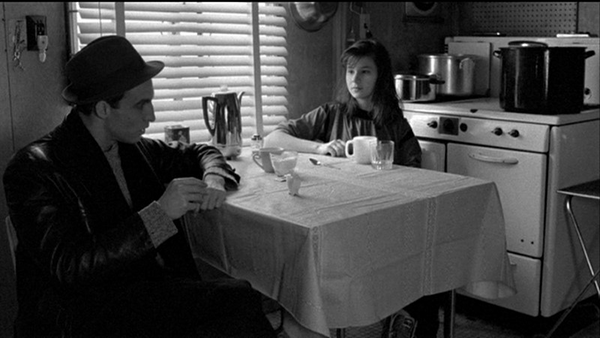
You’re the hottest name in town now. Are you getting calls from the executives?
Yeah, I am actually, but uh I’m not really interested in doing that right now.
Why?
Because I want to have complete control over my work and I want to make small steps. I don’t want to jump into something over my head. I don’t want to work with a union crew or have someone telling me how to cut my film or who’s going to be cast in it. And also because I have the opportunity to make my next one or two projects with European co-productions which give me part or, hopefully, half ownership in my own film. So it just makes a lot more sense to me to keep it under control and make steps as I go, instead of jumping into some kind of studio production which is not interesting to me now.
Can you identify what influenced the making of Stranger Than Paradise?
I have a lot of influences. Anything that moves me influences me somehow. I take from European and Japanese films and also from America: The characters are really American. There’s something very American about the film and yet formally, it’s not traditional at all, it’s very untraditional. That comes from the way I write, which is backwards: Rather than finding a story that I want to tell and then adding the details, I collect the details and then try to construct a puzzle or story. I have a theme and a kind of mood and the characters but not a plotline that runs straight through. I think that’s partly why the narrative takes the form that it does. My first film (A [sic] Permanent Vacation) was similar—and the two things that I am writing now I’m writing in the same way.
The idea of first having the plot scares me. This is more exciting for me, there’s something in the process. The story starts to tell itself to me, rather than me formulating it.
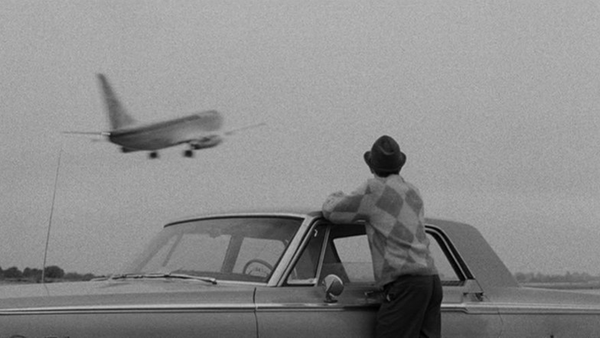
When I looked at the film, I thought, That’s what this country really looks like—not like Buck’s County, Pennsylvania—but like Akron.
Yeah, I have a real fondness for those post-industrial landscapes. There’s something really sad but really beautiful about them. I don’t know if it’s just nostalgia for growing up in Akron, but it is America to me much more than big cities, or clean forests, or anything like that. It’s extremely ugly, but I also find it very beautiful somehow.
The joke in the film is that in coming here, Eva (Eszter Balint) experienced this incredible decline in standards and values; life in Budapest was a lot nicer.
Yeah. I mean it as a reverse on what we’re told about the quality of life in Eastern Europe: gray, depressing, industrial. Eva’s coming to the new world to start a new life. She has a sense of adventure, but when she gets here she finds this even tone to every place she goes in the country. Very bleak and very depressing. I think that works a lot in favor of her sense of humor in the film. The contrast makes the humor work, I think. Even though the film wasn’t intended to be funny.
Both Willie and Eddie were very different male characters than we’re used to seeing. Where did you get them?
Well, John Lurie and I were discussing a story (that the first part of the film eventually evolved into) and our first criterion was not to be like other New York films that are being shown in Europe and being called New Wave—whatever that means. We wanted characters not associated with any kind of music or fashion scene. And although they’re working class, they’re not really involved in a working class milieu. Their values are not the same. They’re more like gamblers and drinkers. They’re not really workers. But they’re in that milieu. They’re the kind of characters who might meet at the racetrack somewhere rather than anyplace fashionable.
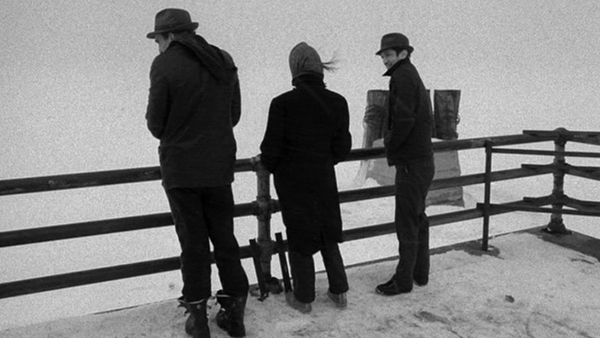
Yeah, they go out to Cleveland and they spend…
Fifty.
That’s a minor theme—the way money works for them. It’s something that you get by stealing, cheating, lying, crime, or by chance. It’s not something that you invest your daily schedule or create the structure of your whole life around. Something that you get as you need it. That will probably be a theme in every film I make. Because I’m not really interested in characters obsessed with some kind of ambition. That kind of American dream thing is just not really interesting.
People in Akron believe in it. When you lived there, did you fit in?
No. I was sort of um, I don’t know, withdrawn. Especially in high school, I never felt part…that’s when everyone is forming social groups and none of them seemed to have anything to do with me. I didn’t feel that I had anything in common with them really. So, I was pretty much outside of things.
Read the rest of this interview in our Digital Anthology on Jim Jarmusch.




